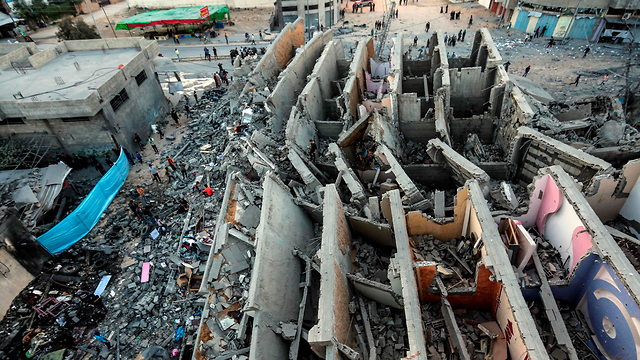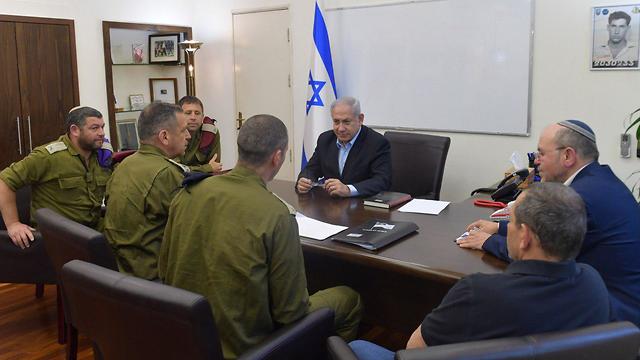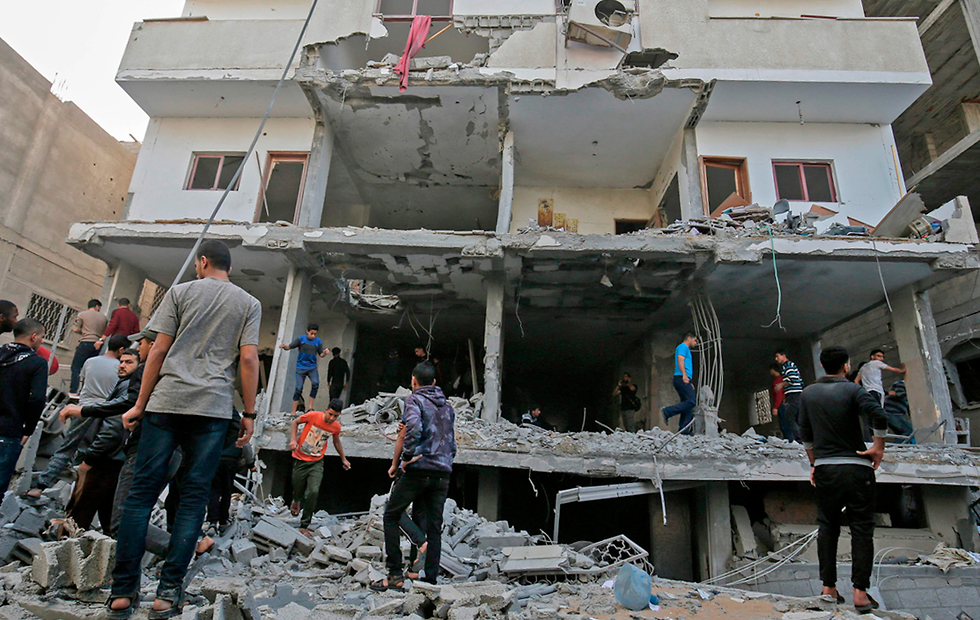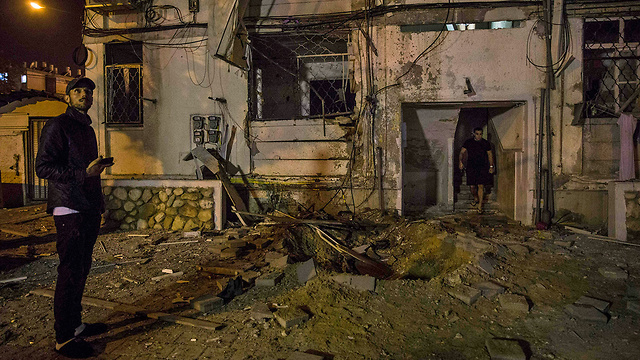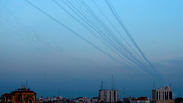
It is evident for all to see that Hamas held its fire in Gaza only after being handsomely paid. Prime Minister and Defense Minister Benjamin Netanyahu insists on hiding the nature of this payment, probably because he is not proud of what he has agreed to.
His defense establishment claims Hamas and Islamic Jihad were hit hard by Israel, but when pressed, they admit they cannot say how long this ceasefire will last. This is no way to establish deterrence.
It's hard to shake the feeling that Israel lost twice. First by paying Hamas off and second by ending the fight with no guarantee of quiet on the border. Israeli policy makers, in fact there is just one Israeli policy maker, behaved like a coward.
Rather than facing criticism from both the left and the right, and informing the public as to why decisions were made, what policy is in place, and what achievements were gained, our leader chose to hide behind his generals, who talked about the IDF's superiority, which no one doubts. But that is only part of the story.
According to the narrative promoted by defense officials, the last three days of fighting were a result of Islamic Jihad's efforts to disrupt the Eurovision Song Contest that takes place next week in Tel Aviv, thereby damaging Israel's image abroad and impacting tourism.
Their attempts at provocations, however, were not successful. Until last Friday that is, when a sniper in Gaza hit an IDF officer. Israel, though recognizing the provocation for what it was, decided to respond by targeting a Hamas commander, a man responsible for the production of long-range missiles.
Israel played into the hands of its enemies, and did so knowingly, opening the door for Hamas to join the party. In fact, it all played out at the exact time that Hamas leaders were discussing a long-term ceasefire with Egyptian negotiators. Could that have been intentional?
Hamas may have initially hoped to contain the situation, but was dragged into a longer and more violent round of violence. Both factions suffered massively by hundreds of Israel Air Force attacks and over 2,000 targets in Gaza hit.
In the end, according to Arab media reports, Israel agreed to accept the second phase of the long-term ceasefire agreement, which means, among other things, construction projects in the Gaza Strip. According to some Egyptian media reports, Israel may also have agreed to discuss a sea port for Gaza, in this phase.
Has Israel agreed to a sea port? Who knows? No one on this side of the border sees any need for accountability.
Now, as after all previous rounds of fighting, the Israeli defense officials talk about a renewed deterrence. But if such a deterrence is now felt by the Palestinian factions, what was the need for the negotiated ceasefire? Will the deterrence last beyond next Friday's border demonstrations? What will happen when the next incendiary airborne device is launched?
Israel's military operated under the guidelines set by the government, namely that they should avoid all-out war. They complied. Military actions were carried out with precision. But the political objectives were to save the Eurovision - which can still be sabotaged by any rogue organization that is able to fire a missile at the heart of Tel Aviv.

This was undoubtably the least necessary round of fighting this year. The political leadership must explain the reasons for it.
The immediate take-away must be that we urgently need a serious cabinet and a full-time defense minister, not one who is also prime minister and health minister and immigration minister.















